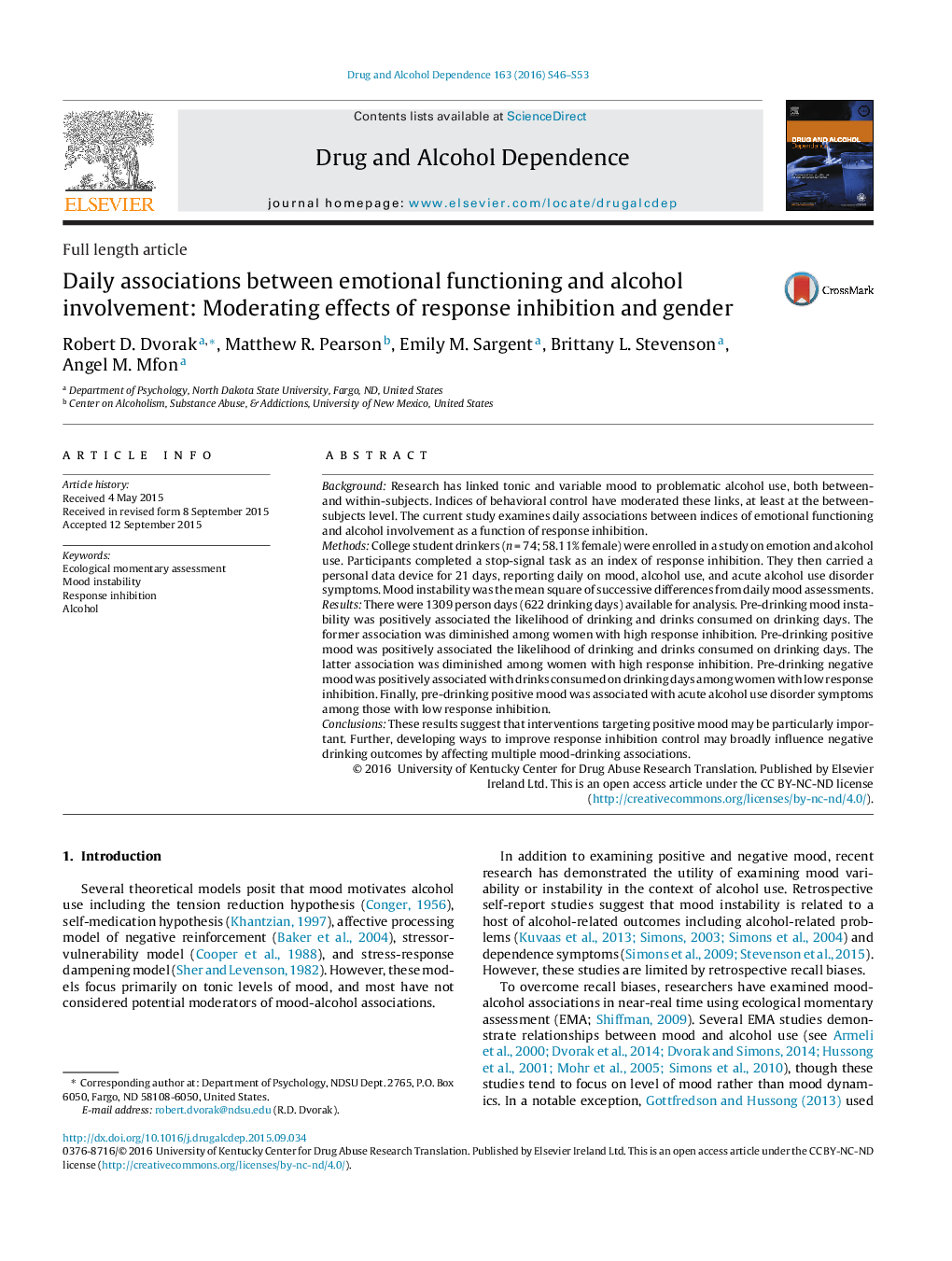| Article ID | Journal | Published Year | Pages | File Type |
|---|---|---|---|---|
| 1069693 | Drug and Alcohol Dependence | 2016 | 8 Pages |
•Participants completed 21 days of mood and alcohol involvement assessments.•Positive mood and mood instability were associated with alcohol use.•These associations were attenuated for women with good behavioral control.•Negative Mood predicted use for women with poor behavioral control.•Positive Mood predicted problems for those with poor behavioral control.
BackgroundResearch has linked tonic and variable mood to problematic alcohol use, both between- and within-subjects. Indices of behavioral control have moderated these links, at least at the between-subjects level. The current study examines daily associations between indices of emotional functioning and alcohol involvement as a function of response inhibition.MethodsCollege student drinkers (n = 74; 58.11% female) were enrolled in a study on emotion and alcohol use. Participants completed a stop-signal task as an index of response inhibition. They then carried a personal data device for 21 days, reporting daily on mood, alcohol use, and acute alcohol use disorder symptoms. Mood instability was the mean square of successive differences from daily mood assessments.ResultsThere were 1309 person days (622 drinking days) available for analysis. Pre-drinking mood instability was positively associated the likelihood of drinking and drinks consumed on drinking days. The former association was diminished among women with high response inhibition. Pre-drinking positive mood was positively associated the likelihood of drinking and drinks consumed on drinking days. The latter association was diminished among women with high response inhibition. Pre-drinking negative mood was positively associated with drinks consumed on drinking days among women with low response inhibition. Finally, pre-drinking positive mood was associated with acute alcohol use disorder symptoms among those with low response inhibition.ConclusionsThese results suggest that interventions targeting positive mood may be particularly important. Further, developing ways to improve response inhibition control may broadly influence negative drinking outcomes by affecting multiple mood-drinking associations.
